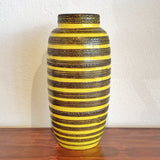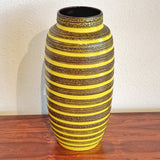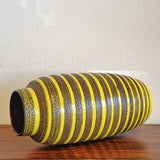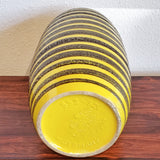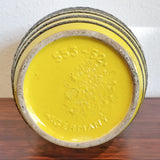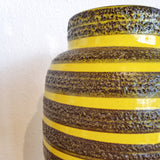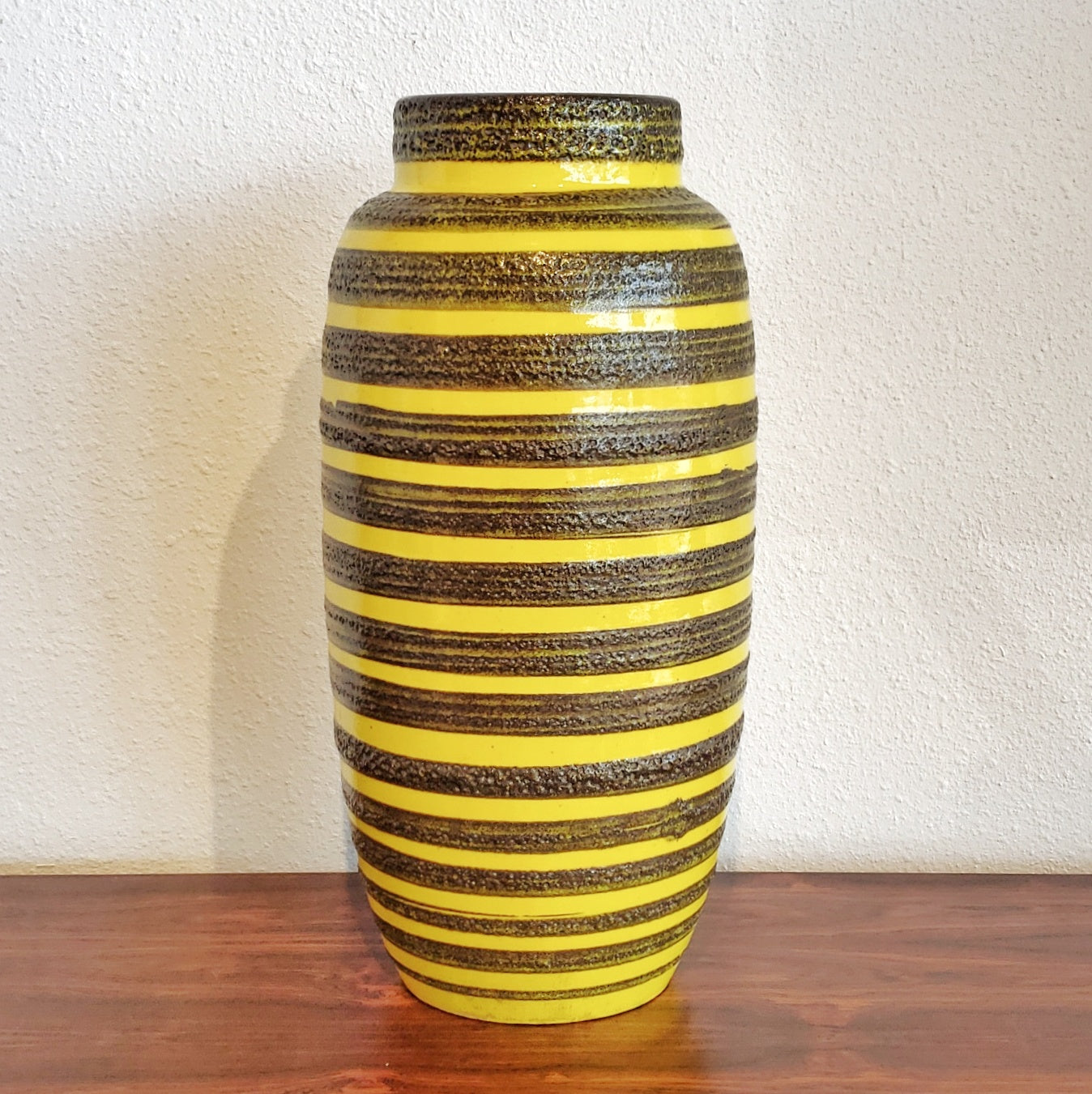
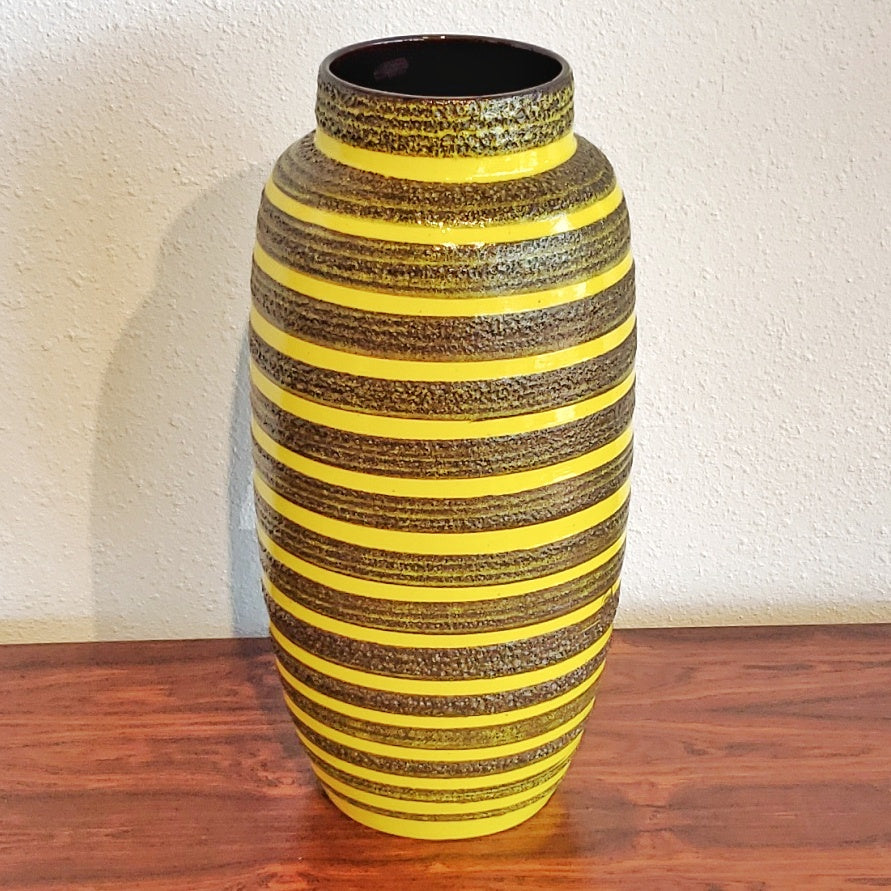
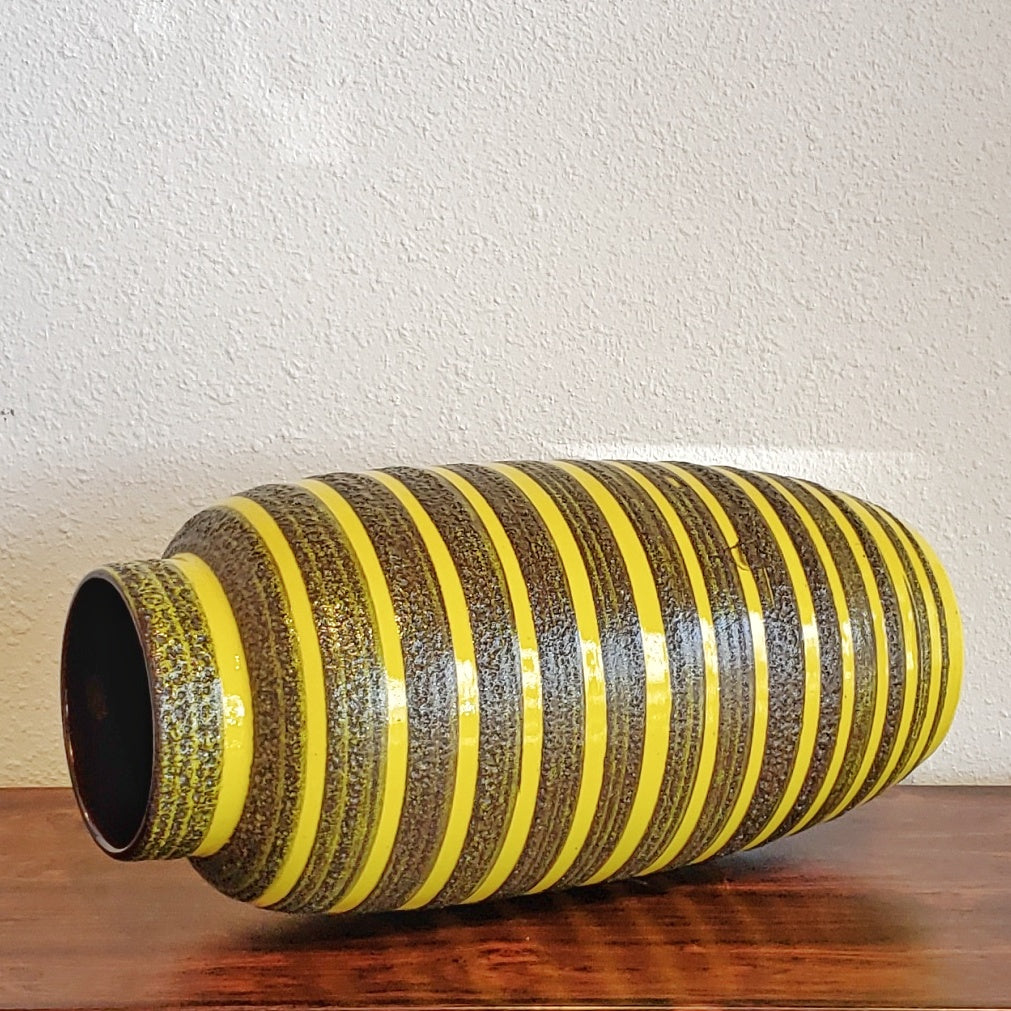
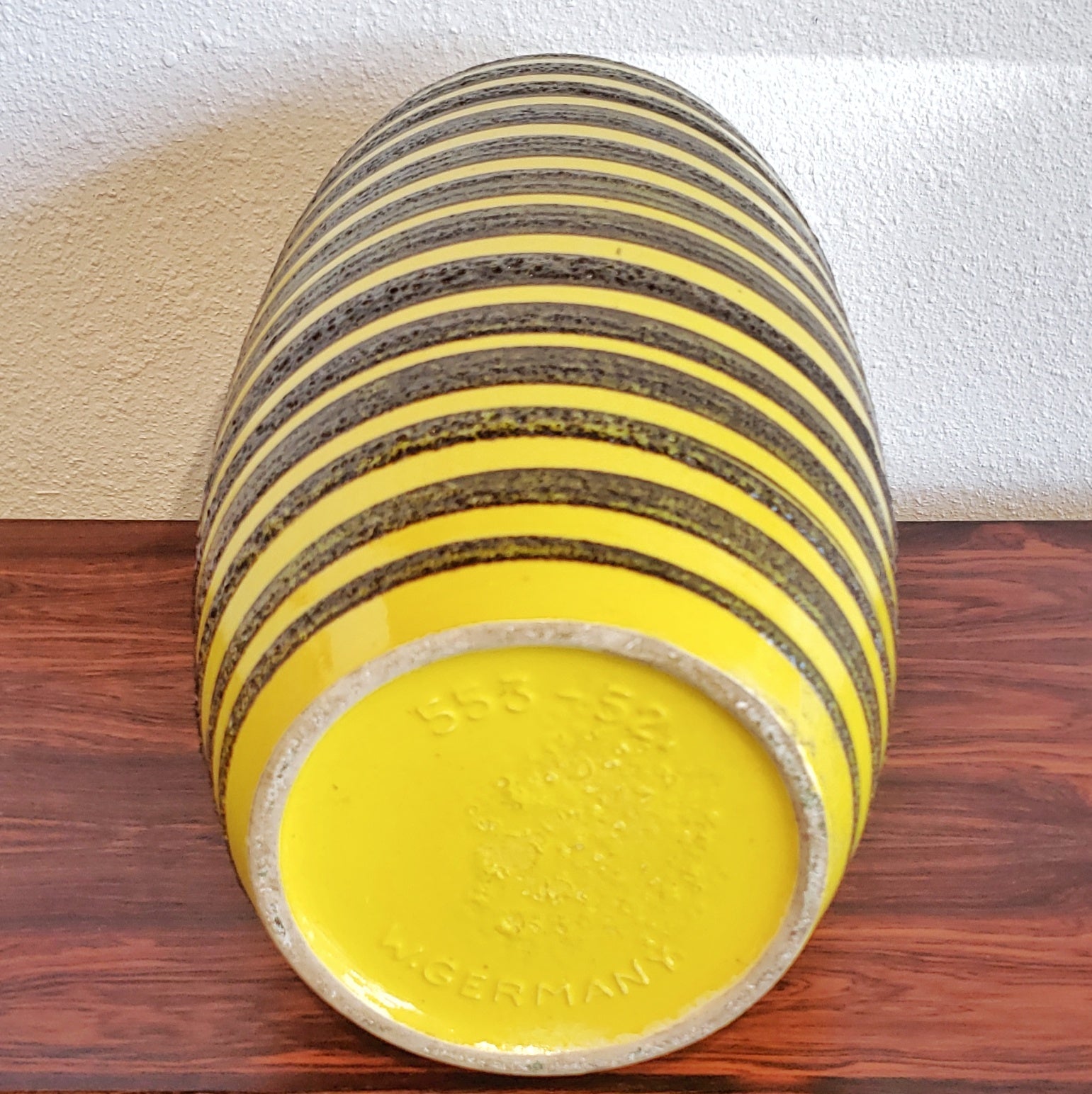
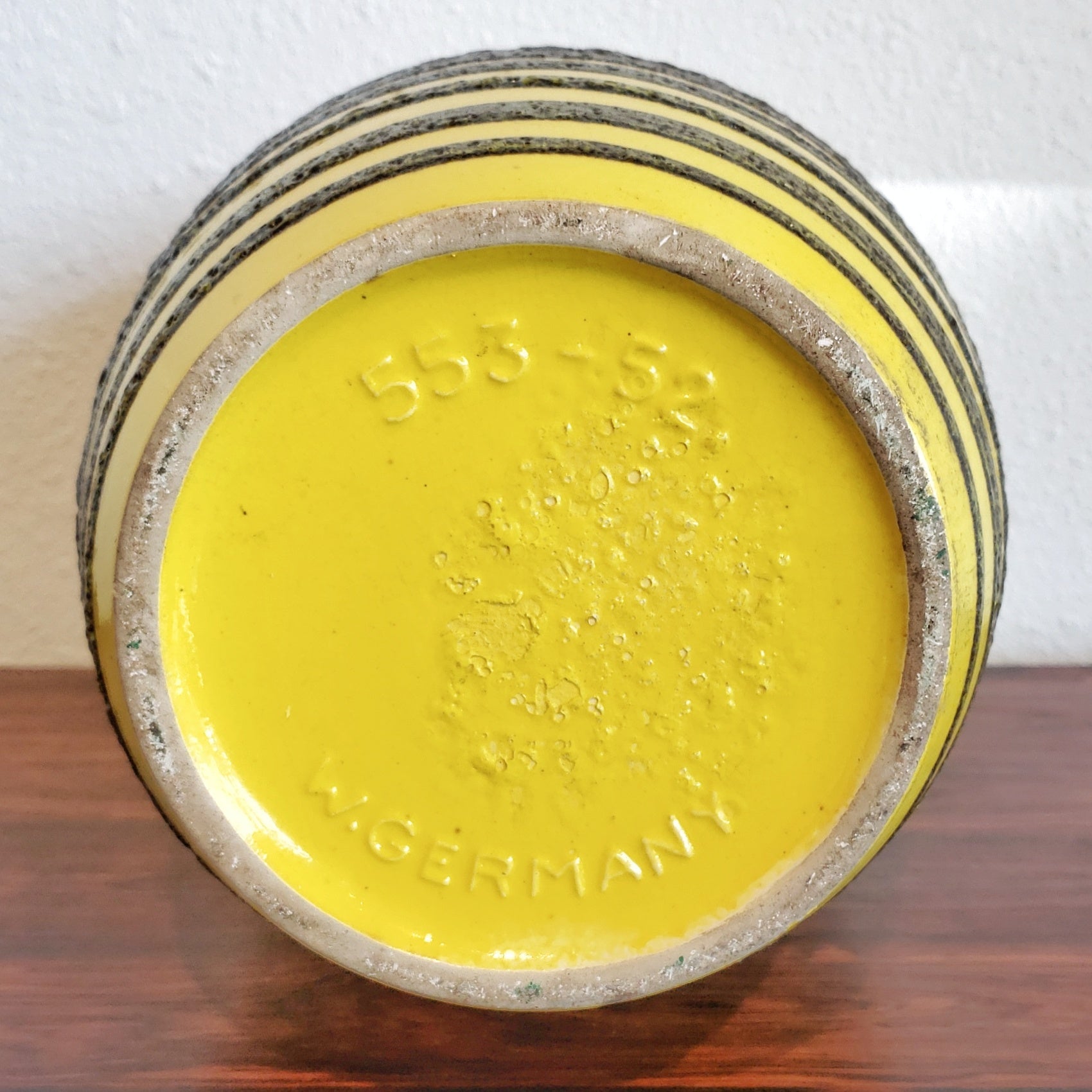
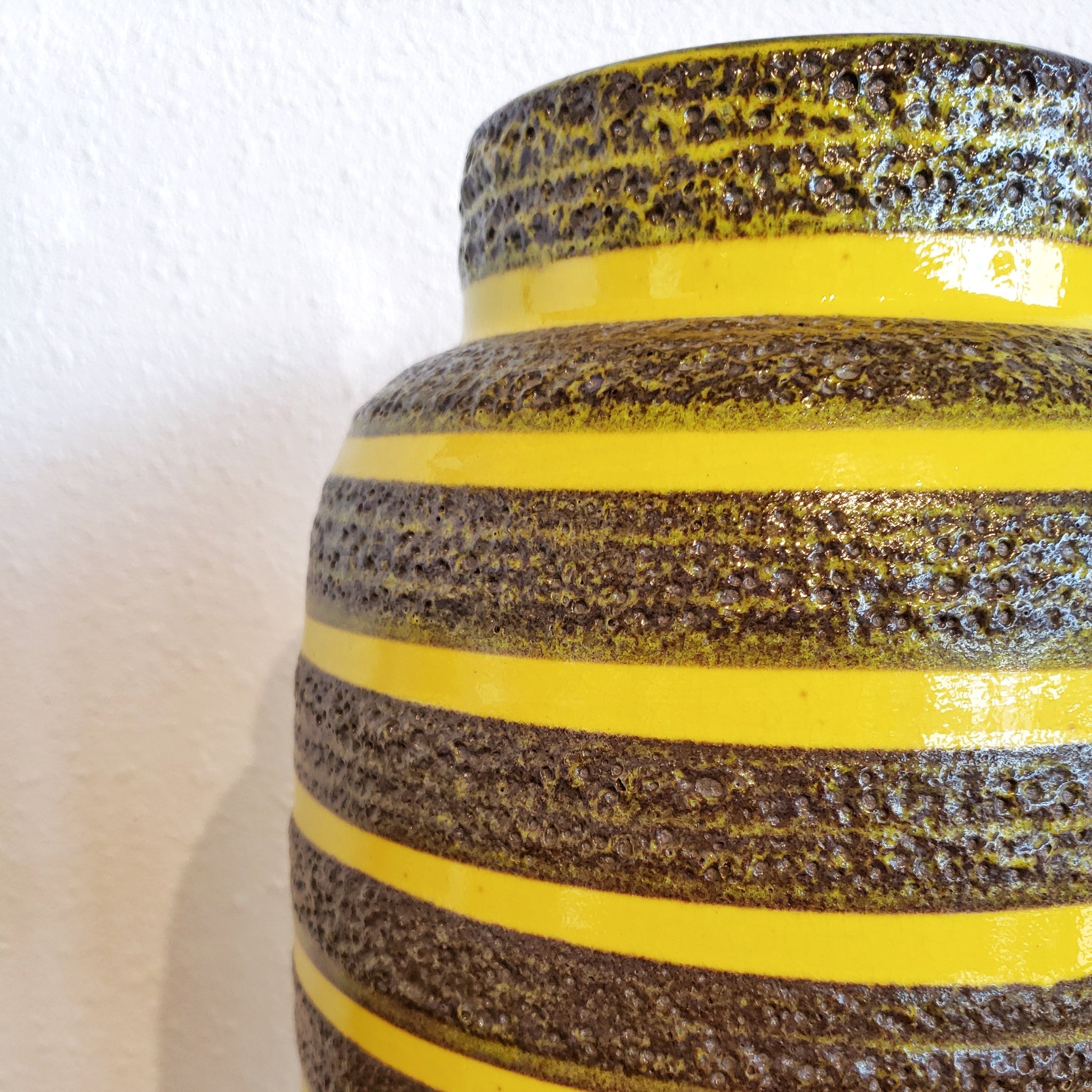
1960s SCHEURICH KERAMIK FLOOR VASE Nr. 553/52
CONTACT US HERE ABOUT THIS ITEM.
A large West German floor vase (553/52) with alternating black and yellow horizontal stripes on a form designed by the prolific master Heinz Siery for SCHEURICH KERAMIK.
HEINZ SIERY was a true luminary in the world of ceramics in the 1950s and '60s. His form designs had significant impact on the product styles of makers Fohr, SCHEURICH, Carstens, and Ruscha, among others. Siery often employed "the golden ratio" (or an approximation) while designing, lending harmonious proportion to his work. This can be clearly seen in his most iconic vase, no. 271/22 for SCHEURICH. Presented in 1959, it was extremely popular and was still being manufactured in the 1970s. Siery also developed and introduced new methods of industrial organization.
In 1969 Siery and wife, Ingrid Siery-Illgner, established a jointly operated studio, Atelier Syré, near the historic town of Euskirchen in North Rhine-Westphalia out of which they both freelanced. (Ingrid had also designed decorative objects for Carstens, and overseen the design department at the Wächtersbach earthenware factory.) In addition to commissioned work, the couple produced creations of their own—notably elegant, figural sculptures made of bronze, whose simple, classical forms and sleek lines evoke the work of Henry Moore and Joannis Avramidis. Atelier Syré houses a sculpture park home to more than 300 of these works.
SCHEURICH had its origins in a joint venture launched in 1928 by Alois Scheurich and his cousin Fridolin Greulich in the small town of Schneeberg near the Czech border in Saxony—wholesaling glass, porcelain, and ceramics. The business was moved to the market community of Kleinheubach in the northeast corner of Bavaria in 1938, and ten years later the partners began producing household ceramics of their own, selling them under the name Scheurich & Greulich. In 1954 Alois founded SCHEURICH to continue the production on his own.
The celebrated designer Heinz Siery was recruited the following year. He developed production techniques for SCHEURICH as well as designs. The overarching manufacturing strategy was to produce a wide array of simple forms that could be decorated in a great variety of glazes. This resulted in a range of pieces that was both extensive and economically adaptable. The approach proved altogether successful; through the 1980s SCHEURICH produced more pottery than any other German manufacturer. Much of it was for export.
The earliest SCHEURICH pieces sport discrete colors and simple geometric patterns. In the late 1960s and the '70s, its glazes were characterized by brown-and-green color schemes, sometimes accented with more vibrant hues—however some décors featured the bold lava and volcanic finishes that are so admired today. Molded décors inspired by ancient cultures or patterns from nature were also represented. By the late 1980s, shapes and color scales became plainer and the work less attractive.
You can do much more than you think you can. – HEINZ SIERY
Production Period – 1960-1969
Country of Origin – WEST GERMANY
Designer – HEINZ SIERY (b. 1927)
Maker – SCHEURICH
Attribution – MARKED
Materials – CERAMIC
Colors – YELLOW, BLACK
Condition – VERY GOOD (no defects; may show slight traces of use)
Height (cm) – 52.0
Diameter (cm) – 24.0

